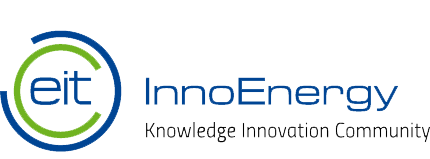
IST: Instituto Superior TŽcnico (Inno Energy)
Our unique European Master’s programmes address the most exciting and important areas in sustainable energy and energy engineering. All develop highly valued, in-demand knowledge and skills for a rapidly changing energy sector. Interested in renewable energy, nuclear fuels, smart cities, or clean fossil fuels? Want to be an expert in smart grids, or gain a broader overview of current and future energy technologies? We have the programme for you
Masters Energy Technologies
A broad-based education in a variety of key engineering disciplines. A focus on the inter-disciplinary aspects of the sustainable energy sector. And an in-depth understanding of the role of innovation and entrepreneurship in the future energy industry.
The Master’s in Energy Technologies enables you to think in new ways about energy, and gives you a solid foundation from which to meet tomorrow’s energy challenges.
The programme is divided into a series of modules, each of which consists of several individual courses:
• You must complete courses worth 60 ECTS credits in the first year, and courses worth 30 ECTS credits in the first semester of the second year.
• You spend the final semester of your second year on your Master’s Thesis, which is worth 30 ECTS credits.
• On completing the programme you will have earned 120 ECTS credits in total – and a double degree.
In the first year, you will follow courses at IST: Instituto Superior Técnico in Portugal. Once you have completed these required courses, you can choose to specialise in one of a number of fields:
• Fuels
• Renewable energy
• Energy conversion
• Energy efficiency
In your second year, you can choose between the following (you are required to change universities between Year 1 and Year 2):
• Grenoble INP: Institute of Technology in France
• UU: Uppsala University in Sweden
• KIT: Karlsruhe Institute of Technology in Germany
The modules available at these universities are as follows:
Uppsala University
• Decentralised grid
• Energy in buildings
• Energy economics
• Renewable energy
Karlsruhe Institute of Technology
• Engineering thermodynamics
• Fundamentals of energy technology
• Power plant technology
• Thermal turbo-machines
• Energy technology for buildings
• Modelling and simulation in energy and fluid engineering
Grenoble INP
• Energy in buildings
• Renewable energy
The admissions criteria are:
• A copy of your Bachelor’s degree certificate (worth a minimum of 180 ECTS credits),
• A copy of your transcript of records
• Proof of English proficiency
• Your CV or resume
• A copy of your passport
• Where required, a motivation letter explaining why you wish to apply to the programme
Requirements to get a Spanish student visa?
Before you schedule an appointment at the Spanish Embassy in your country there are a few documents you need to have ready. These visa preparation documents highly vary per nationality and sometimes even per state department of your country. See here a list of requirements that usually need to be presented.
• National visa application form
• Biometric pictures
• Passport with expiry date at least 6 months past the date you are applying for
• Health Insurance Letter from Spanish provider
• Medical Examination, following the current requirements of the Spanish Health Association
• Accommodation Letter
• Bank statement, showing that you can financially sustain yourself during your whole stay in Spain (this amount varies every year, contact us for the up-to-date requirements)
• Invitation and offer letter from a Spanish academic institution
• Visa fees paid
• Most of these documents need to be translated into Spanish by a sworn translator and legalized by the notary or Spanish authorities, depending on your country of origin.
LEAP has a visa success rate of 95%. Contact one of you educational experts to enlarge your acceptance chance



